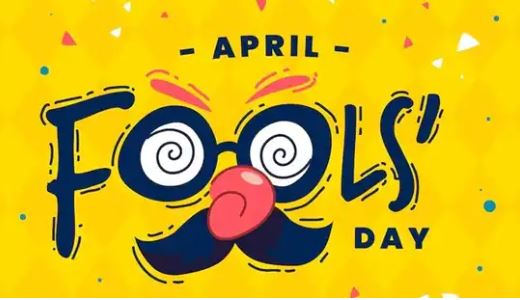April Fools’ Day, though an unofficial holiday, is widely popular across the world. All you want to know about its history and significance.

The day to share jokes, pull pranks and laugh generously, April Fools’ Day, though an unofficial holiday, is widely popular across the world. You may not get an off from work or school on this day, but it’s the perfect opportunity to make the atmosphere light-hearted with jokes and hoaxes and even make peace with people you normally don’t get along well with. In India too, April Fools’ Day is celebrated with much enthusiasm thanks to its widespread recognition in popular culture, media, and the internet. (See pics: April Fools’ Day fun pranks for friends and family)
Most of us likely have childhood memories of friends placing plastic jelly fish or cockroach beside the pillow to play prank on April 1 and crying out – ‘April Fool banaya, bada maja aaya’ after seeing your terrified face. No wonder, this day is keenly awaited by pranksters who find newer ideas to leave near and dear ones shocked only to enjoy their reaction thereafter.
Why do we celebrate April Fools’ Day?
April Fools’ Day is being celebrated on April 1 since centuries and while there are many stories associated with it the most popular ones dates to the 16th century France. In 1582, France switched to Gregorian calendar from the Julian calendar as decided by the Council of Trent in 1563. Before this change, New Year was celebrated around the time of spring equinox which used to fall between end of March to April. Following the new calendar moved the start of the new year to January.
Like all new things, this change took some time to get implemented with many people either refusing to accept the new date or remaining unaware of the change. People who continued to celebrate the new year during the last week of March or April 1 during spring equinox, became the butt of jokes and hoaxes by those who had started following the new calendar. They were called April fools and were subjected to ridicule and pranks.
Another reference that hinted at the origin of the day is found in a 1561 poem by Flemish poet Eduard de Dene of a nobleman who sent his servant on foolish errands on April 1.
The origins of April Fools’ Day can also be traced back to ancient Roman festivals such as Hilaria, which was celebrated at the end of March or Holi in India, which is celebrated around the same time. During Hilaria, people would dress up in disguises and mock each other, much like the modern-day tradition of playing pranks, while Holi is all about light-hearted conversations, jokes and fun with colours.









